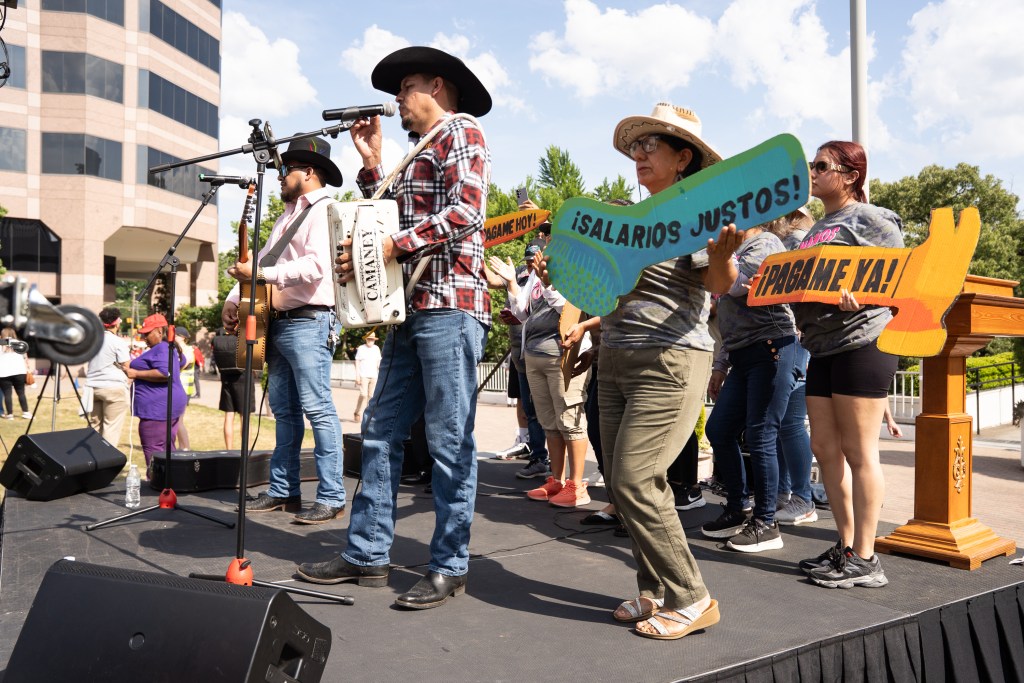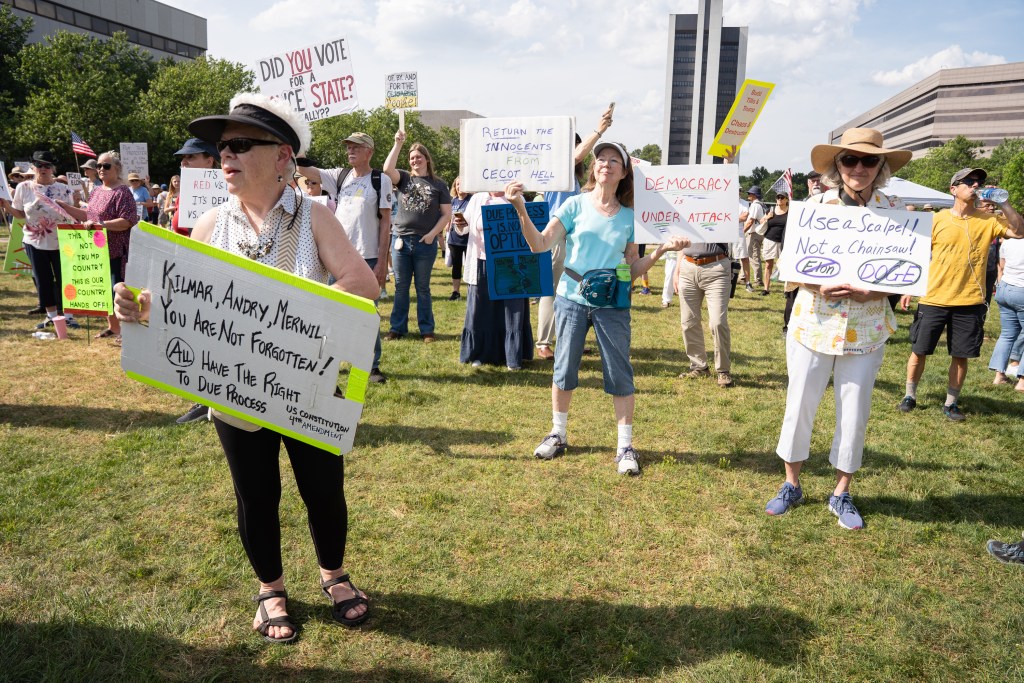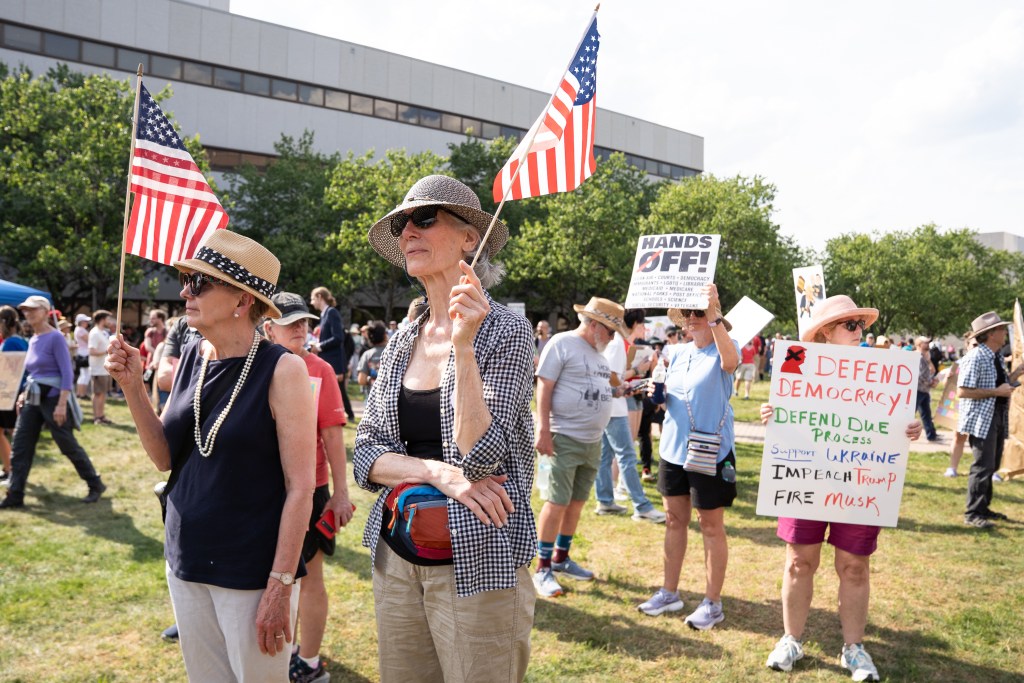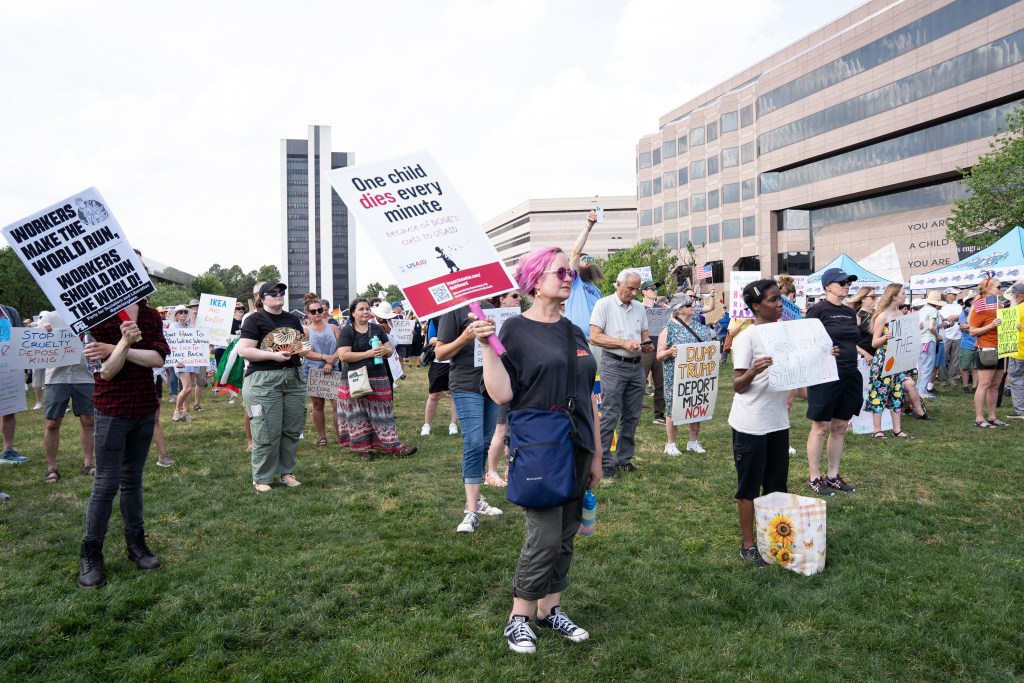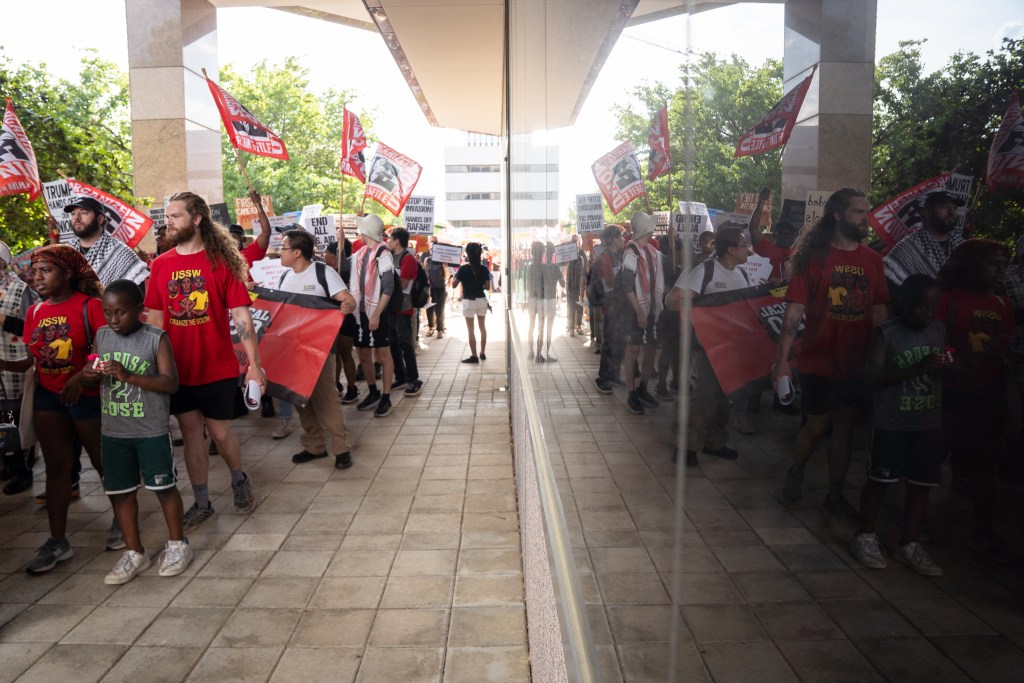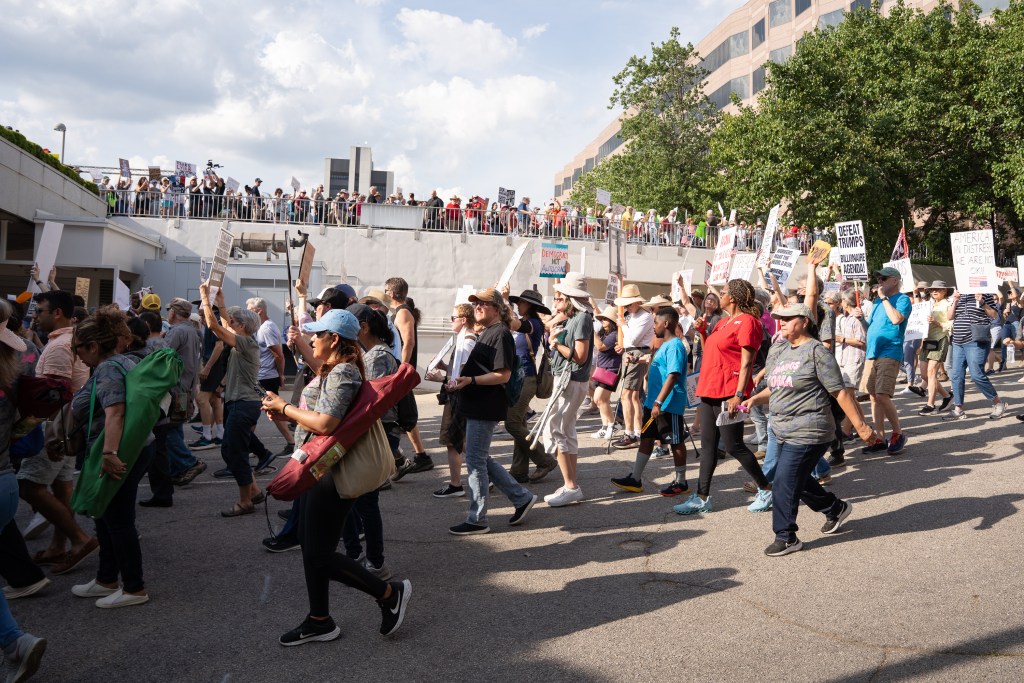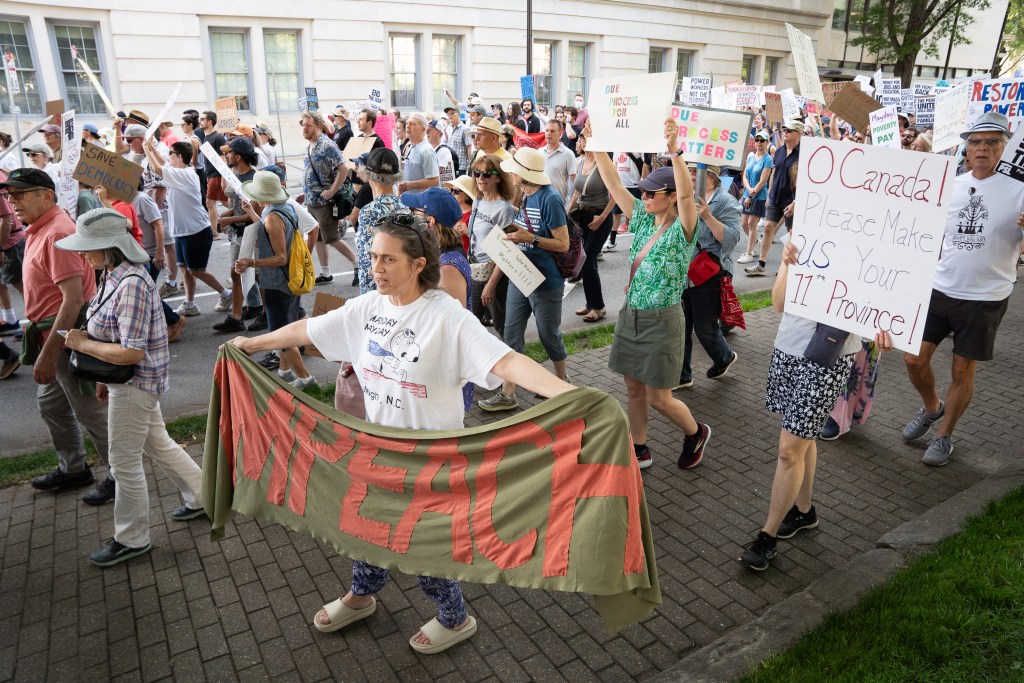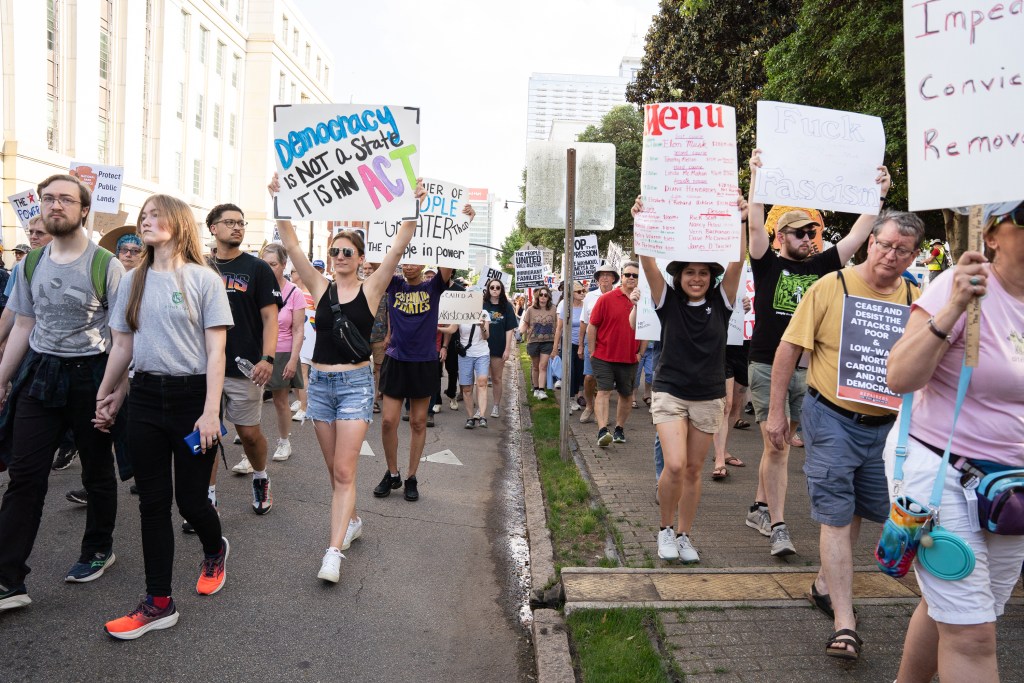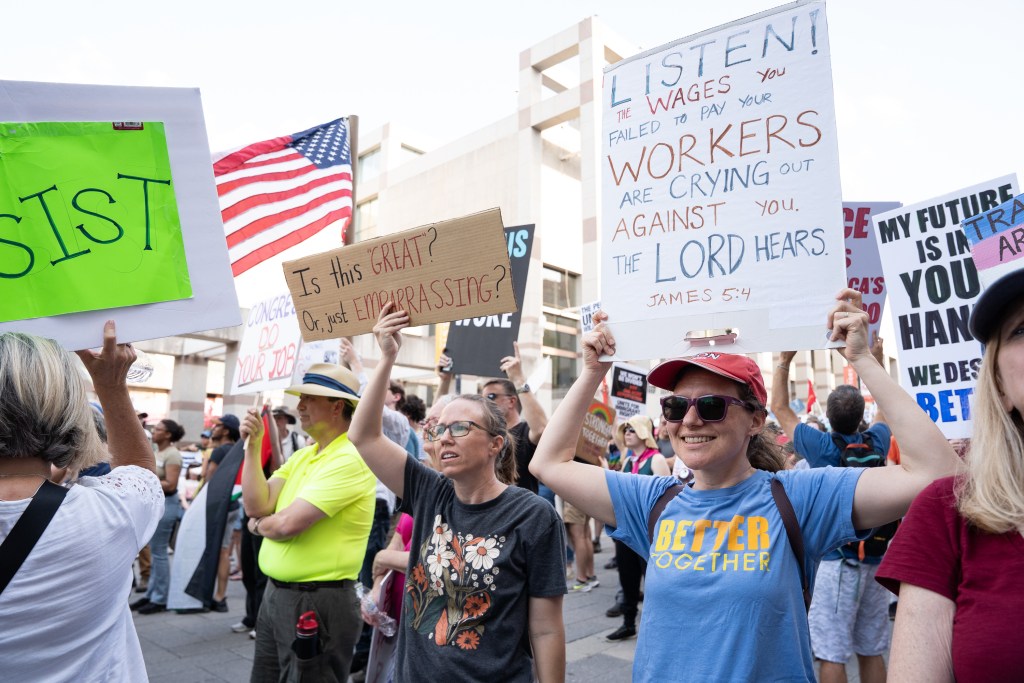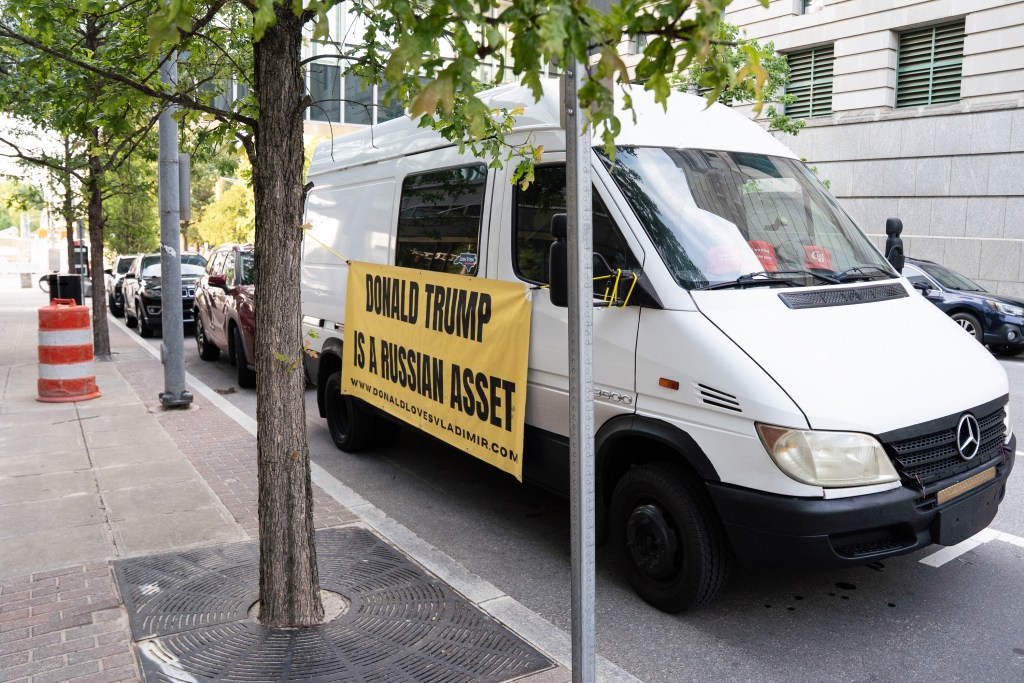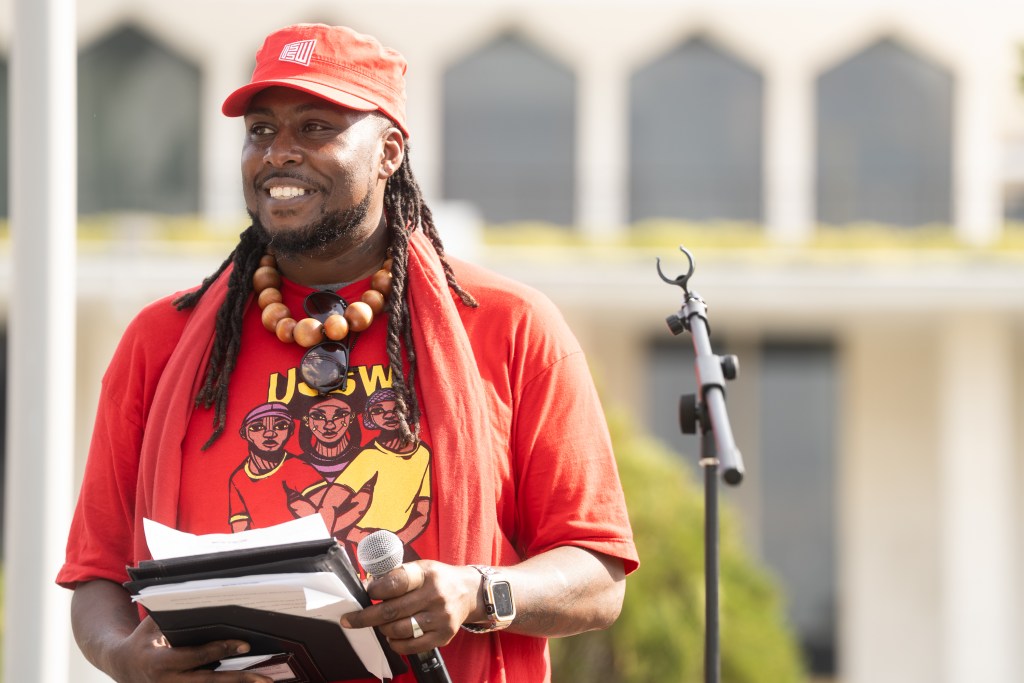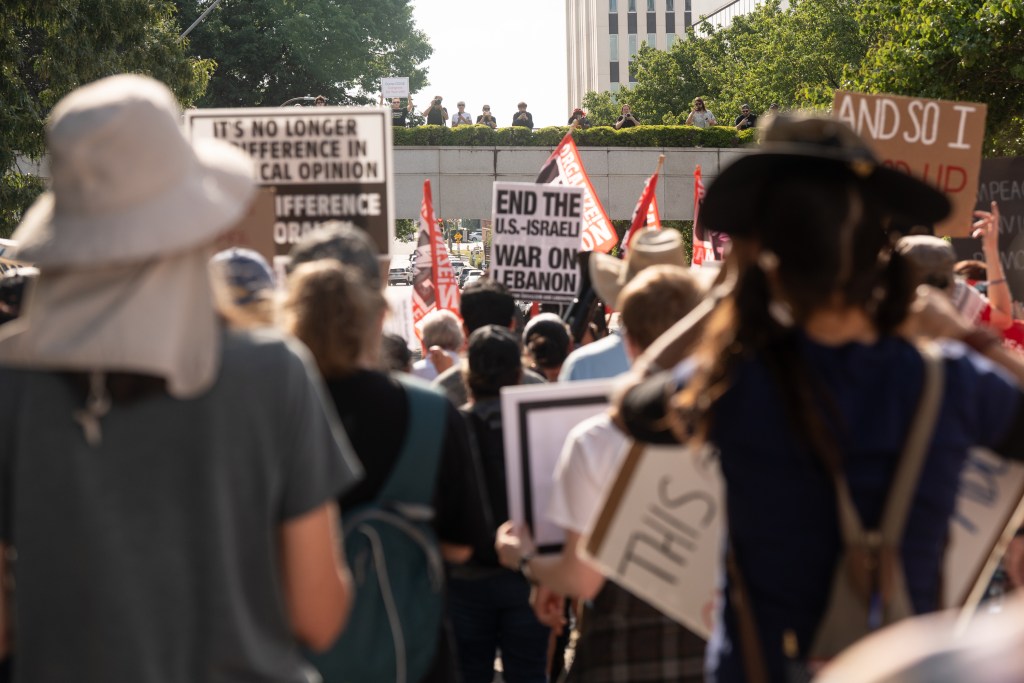Thousands of people marched shoulder-to-shoulder through downtown Raleigh on Thursday evening for May Day, or International Workers’ Day. They wore union gear and T-shirts reading “make lying wrong again.” They carried American and Palestinian flags and waved handmade posters above their heads. They screamed a chorus of overlapping call-and-response chants: “This is what democracy looks like!” and “Due process now, we won’t back down!”
Among the faces in the crowd were members of the Union of Southern Service Workers, UE Local 150 (the union for North Carolina’s public employees), Carolina Amazonians United for Solidarity and Empowerment, United Steelworkers, United Auto Workers, the National Association of Letter Carriers, the and the Triangle Tenants Union. Hundreds of people from Siembra NC, the Party for Socialism and Liberation, and the North Carolina Association of Educators—plus plenty of their friends and supporters—rounded out the crowd.
American May Day began in the 1880s, when industrial workers and labor activists in Chicago organized a national strike to demand an eight-hour workday. The United States government has never officially recognized May Day, which celebrates working-class unity and workers’ rights, but workers and activists continue to observe it: this year, there were more than 1,000 protests planned around the country.
“This is where we show the billionaires how much they are outnumbered by us,” says Ieisha Franceis, a healthcare worker from Durham and a member of the Union of Southern Service Workers.
“This year is a lot different, because we’re up against a whole lot,” Franceis adds. “We’ve had government officials that we didn’t like. This government is something totally different. This is demonic. So we have to organize like we’ve never organized in our lives. We have to unionize like we’ve never unionized.”
Many of the protesters said they were marching in opposition to the Trump administration’s mass deportations and erosion of due process rights. One of them was Carlos Ariel Magaña Perez, a member of Siembra NC.
“I have a lot of family who are immigrants, and some of them are undocumented,” Perez says. “I grew up with these people. So this affects me directly, and that is my biggest motivation for coming out here.”
Perez added that immigration issues are inseparable from labor issues and protecting everyone’s basic rights.
“It’s one struggle,” he says. “So to see people here from all different backgrounds, old, young, Hispanic, not Hispanic, Black, white, gay, straight, everyone showed up—it feels like we’re not alone. I have their back, they have mine.”
Protesters’ reasons for marching were as diverse as the crowd itself. Healthcare workers told INDY they are fearful that women will lose access to reproductive health care (“It’s getting very Handmaid’s Tale.”) Young people and students called for an end to U.S. aid to Israel and the release of Mahmoud Khalil and Rümeysa Öztürk, graduate students who are being detained by ICE in what legal experts say is a violation of their free speech and due process rights. Parents said they were there to demand a better, safer future for their kids.
An AmeriCorps worker who asked not to be identified said she came to May Day because DOGE just gutted that federal agency.
“They just terminated 32,000 members across the United States,” she says. “These are young people that are trying to get civically involved … doing incredibly important work for a very low wage. And they are being shown that those efforts can be washed away just like that.”
The crowd stayed strong for three hours, weaving its way from Halifax Mall around the State Capitol and back to Bicentennial Plaza, where speakers led them in chants and songs. When the marchers finally dispersed, it was slowly, with many still waving their signs and raising their fists to passing cars and pedestrians.
Support independent local journalism. Join the INDY Press Club to help us keep fearless watchdog reporting and essential arts and culture coverage viable in the Triangle.
Chloe Courtney Bohl is a corps member for Report for America. Reach her at [email protected]. Comment on this story at [email protected].

